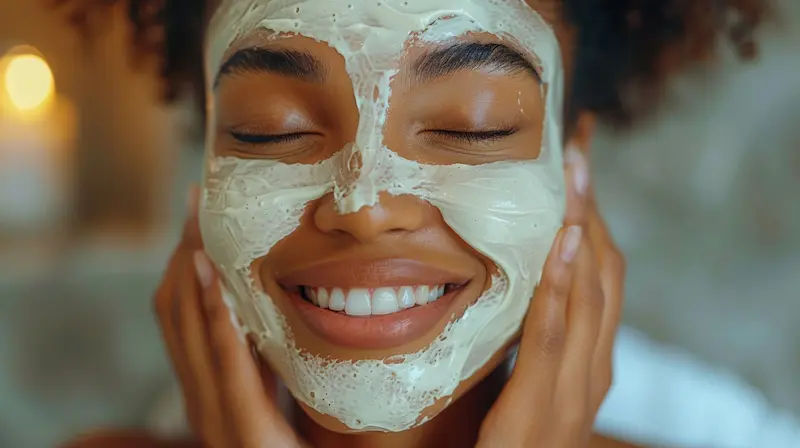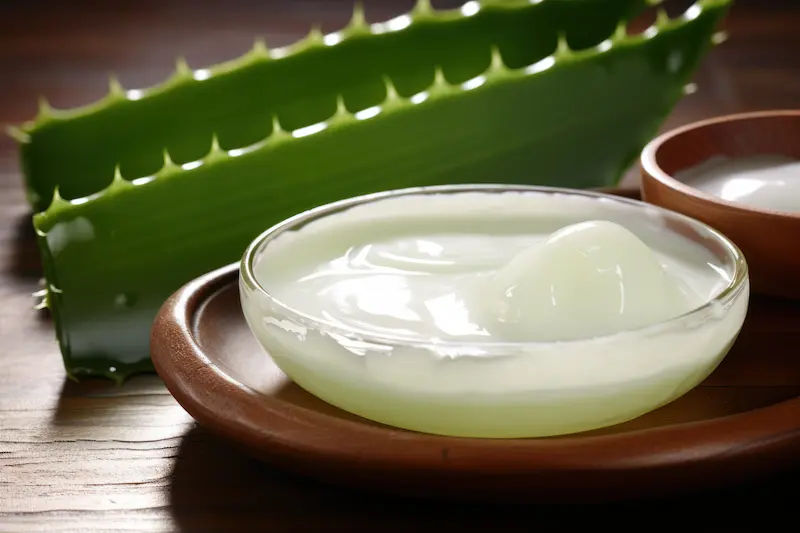Monsoon Skincare Guide: Tips for a Healthy, Glowing Complexion
Keep your skin healthy and glowing during the rainy season with our monsoon skincare guide. Discover essential tips, do’s and don’ts, and dermatologist-recommended routines.

Written by Dr. Dhankecha Mayank Dineshbhai
Reviewed by Dr. M L Ezhilarasan MBBS
Last updated on 13th Jan, 2026

The pitter-patter of rain brings relief from the scorching summer heat, but it also ushers in a set of unique challenges for your skin. The monsoon season is characterized by high humidity levels, which can disrupt your skin's natural balance, leading to a host of issues like clogged pores, acne breakouts, fungal infections, and an overall dull complexion. Many people make the mistake of neglecting their skincare routine during these months, assuming the moisture in the air is sufficient. However, this is precisely when your skin needs the most attention. This comprehensive monsoon guide will walk you through everything you need to know—from understanding how humidity affects your specific skin type to building a simple yet effective daily routine. We’ll provide practical tips to help you navigate the rainy season and emerge with healthy, radiant skin that glows from within, no matter the weather outside.
How Humidity Affects Different Skin Types?
The blanket of humidity affects everyone, but not in the same way. Your skin type dictates the specific challenges you'll face.
Oily and Acne-Prone Skin
For those with oily skin, the monsoon can feel like a nightmare. High humidity stimulates the sebaceous glands to produce even more oil (sebum). This excess oil, when mixed with sweat, pollution, and humidity, becomes a breeding ground for bacteria, leading to clogged pores and frequent acne breakouts. Blackheads and whiteheads also become more prevalent.
Dry Skin
It's a common misconception that dry skin gets better in the humidity. While the air is moist, the constant shift between humid outdoors and air-conditioned, dehydrating indoors can strip the skin of its natural oils, leading to patches of flakiness and tightness amidst an oddly slick surface.
Combination Skin
This skin type experiences the worst of both worlds. The T-zone (forehead, nose, chin) becomes oilier and more prone to blackheads, while the cheeks may feel normal or even dry, requiring a balanced approach to skincare in the rainy season.
Sensitive Skin
Humidity can intensify skin sensitivity. The damp environment promotes the growth of allergens and fungi, which can cause irritation, redness, and conditions like eczema to flare up.
Consult Top Specialists
The Ultimate Monsoon Skincare Routine
Simplifying your routine and switching to lighter products is the golden rule for monsoon skincare.
Step 1: Cleansing (But Not Over-Cleansing)
Cleansing is non-negotiable. Aim to wash your face 2-3 times a day with a gentle, pH-balanced, water-based cleanser or a foaming face wash that can remove excess oil without stripping your skin. Over-cleansing can signal your skin to produce more oil, so avoid harsh, alcohol-based products.
Step 2: Toning to Restore pH Balance
A good toner does wonders in the monsoon. It helps remove any last traces of impurities, tightens pores, and restores your skin's pH balance after cleansing. Look for alcohol-free toners with ingredients like rose water, witch hazel, or niacinamide, which soothe and mattify the skin.
Step 3: Lightweight Moisturization is Key
Never skip moisturiser! Humid air doesn't hydrate your skin; it just sits on top of it. Choose a lightweight, gel-based or oil-free moisturiser that provides hydration without adding grease. Ingredients like hyaluronic acid are excellent as they attract moisture to the skin without clogging pores.
Step 4: Never, Ever Skip Sunscreen
This is the most common monsoon skincare mistake. UV rays penetrate through clouds and rain, causing damage and hyperpigmentation. Use a broad-spectrum, non-comedogenic sunscreen with at least SPF 30. A gel-based sunscreen is ideal for humid weather as it absorbs quickly and doesn't feel heavy.
Tackling Common Monsoon Skin Problems
Here’s how you can tackle common monsoon skin problems:
Preventing and Treating Acne Breakouts
Prevention is key. Keep your skin clean, avoid touching your face, and change out of wet clothes immediately. Incorporate a salicylic acid or benzoyl peroxide-based product into your routine 2-3 times a week to keep breakouts at bay. If you experience severe, persistent acne that doesn't respond to over-the-counter treatments, consult a dermatologist online with Apollo 24|7 for a personalised treatment plan.
Keeping Fungal Infections at Bay
Damp skin folds are perfect for fungal growth, leading to itchy, ring-shaped rashes. Keep your skin dry, wear loose, breathable cotton clothes, and use an antifungal powder in prone areas. Avoid sharing towels.
Fighting Skin Dullness and Excess Oil
Exfoliate once a week with a gentle scrub or a chemical exfoliant (like AHA/BHA) to slough off dead skin cells and reveal brighter skin. Using a clay mask once a week can also help draw out impurities and control shine.
Monsoon Skincare Don'ts: Habits to Break Now
- Don't use heavy, oil-based creams and lotions.
- Don't wear makeup for extended periods; opt for a light, mineral-based foundation or a tinted moisturiser.
- Don't skip exfoliation, but also don't overdo it.
- Don't wear tight, synthetic clothing that traps sweat.
- Don't ignore persistent skin infections; they require medical attention.
Diet and Hydration for Monsoon Glow
What you put inside your body reflects on your skin. Drink plenty of water to flush out toxins. Include antioxidants in your diet—berries, nuts, and green leafy vegetables help fight free radicals. Avoid excessive fried street food, which can trigger oil production and inflammation.
Conclusion
The monsoon season doesn't have to be a battle for your skin. By understanding its unique needs and adapting your routine accordingly, you can easily combat humidity, oiliness, and infections. The key lies in simplicity, consistency, and choosing the right products that allow your skin to breathe. Embrace lighter textures, prioritise cleansing and protection, and support your routine with healthy lifestyle choices. Remember, listening to your skin is paramount. If you notice unusual reactions, persistent acne, or signs of infection, it's crucial to get expert help. You can easily book a quick online consultation with a dermatologist on Apollo24|7 to address any monsoon-related skin concerns from the comfort of your home. With these tips, you’re all set to enjoy the refreshing rains while showcasing healthy, glowing skin.
Consult Top Specialists
Consult Top Specialists
Dr. Kavitha Killaparthy
Dermatologist
23 Years • MBBS,DIPLOMA(DERMATOLOGY,VENEREOLOGY,LEPROSY)
Hyderabad
JDS Skin & Hair Clinic, Hyderabad
Dr. Mayuri Jain
Dermatologist
11 Years • MBBS, MD Dermatology , Venereology & Leprosy
Delhi
Dr Mayuri Jain Clinic, Delhi

Dr Ekansh Shekhar
Dermatologist
10 Years • MBBS MD
Lucknow
Apollo Clinic Hazratganj, Lucknow
Dr.j Girishma
Dermatologist
6 Years • MBBS MD DERMATOLOGY
Bengaluru
Apollo Medical Center, Marathahalli, Bengaluru

Dr. Swathi Thadishetti
Dermatologist
14 Years • MBBS, MD (Dermatology, Venereology & Leprosy)
Karim Nagar
RKD Hospital, Karim Nagar
Consult Top Specialists
Dr. Kavitha Killaparthy
Dermatologist
23 Years • MBBS,DIPLOMA(DERMATOLOGY,VENEREOLOGY,LEPROSY)
Hyderabad
JDS Skin & Hair Clinic, Hyderabad
Dr. Mayuri Jain
Dermatologist
11 Years • MBBS, MD Dermatology , Venereology & Leprosy
Delhi
Dr Mayuri Jain Clinic, Delhi

Dr Ekansh Shekhar
Dermatologist
10 Years • MBBS MD
Lucknow
Apollo Clinic Hazratganj, Lucknow
Dr.j Girishma
Dermatologist
6 Years • MBBS MD DERMATOLOGY
Bengaluru
Apollo Medical Center, Marathahalli, Bengaluru

Dr. Swathi Thadishetti
Dermatologist
14 Years • MBBS, MD (Dermatology, Venereology & Leprosy)
Karim Nagar
RKD Hospital, Karim Nagar
More articles from Skin Care
Frequently Asked Questions
Can I skip moisturiser during the monsoon if my skin is oily?
No. Oily skin still needs hydration. Skipping moisturiser can actually cause your skin to produce more oil to compensate for the perceived dryness. Opt for a light, oil-free, or gel-based moisturiser.
How can I prevent my skin from looking dull in the rainy season?
Weekly exfoliation is crucial to remove dead skin cells that cause dullness. Also, ensure you are using a vitamin C serum in your routine and staying hydrated to maintain a natural glow.
What is the best way to treat fungal infections on the skin at home?
Keep the affected area clean and completely dry. Apply an over-the-counter antifungal powder or cream. Wear loose, breathable clothing. If the infection spreads or doesn't improve in a few days, consult a doctor online with Apollo24|7 for prescription medication.
Is it necessary to use sunscreen when the sky is overcast?
Absolutely. Up to 80% of the sun's harmful UV rays can penetrate clouds and fog. Daily sunscreen use is essential to prevent premature ageing and skin damage, regardless of the weather.
How often should I exfoliate my skin during the monsoon?
For most skin types, exfoliating 1-2 times a week is sufficient. Over-exfoliating can damage your skin's barrier, leading to increased sensitivity and oil production.




